
Bottom’s Dream
Peter Holland
In 1661, over 60 years after the first performance of A Midsummer Night’s Dream, Bottom finally became its star when a cut-down version of Shakespeare’s play was published, renamed as The Merry Conceited Humours of Bottom the Weaver. No doubt Bottom always assumed he was the star but this time, with the lovers excised from the text completely and only as much of the rest left as would be needed to provide a context for Bottom’s story, no-one could have disagreed. If he still didn’t get to play every role himself – Pyramus, Thisbe and Lion – he could at least relish the final, solo bow, for, in productions of Dream, it is usually clear that there is no star, that this is an ensemble play to an extent unusual even in Shakespeare.
But it is less the re-centring of the action that intrigues than the sales pitch or marketing ploy on the title page of The Merry Conceited Humours, announcing it as having been ‘lately, privately, presented by several apprentices for their harmless recreation with great applause’, with the last two words in a huge font size, almost as big as the word ‘Bottom’ in the title. Probably there never was such a performance; certainly there are no records of one. Yet the idea of, say, an apprentice weaver playing Nick Bottom the weaver appeals. Given how often A Midsummer Night’s Dream, a play that ends with an amateur performance, has been performed in schools and by local amateur dramatic societies, the layering of amateur actors onto the roles of amateur actors fascinates me.
We watch amateur performances indulgently. But the men in Theseus’ court watching ‘The Most Lamentable Comedy and Most Cruel Death of Pyramus and Thisbe’ do not. Their comments on the efforts of Peter Quince and his co-workers to solve the technical problems of their play verge on the brutal. When, in Love’s Labour’s Lost, a motley crew of would-be actors present the Pageant of the Nine Worthies, the courtiers mock them and Holofernes the schoolmaster rounds on his tormentors: ‘This is not generous, not gentle, not humble’. Bottom and his friends do not get the chance. Only Hippolyta, initially dismissive when she says ‘This is the silliest stuff that ever I heard’, has a comment that speaks of the way even poor and technically incompetent performances can have a power and truthfulness that moves us, when Bottom’s magnificently excessive performance of Pyramus’s dying speech causes her to say ‘Beshrew my heart, but I pity the man.’ And Hermia and Helena are, usually inconspicuously in performances, completely silent, saying not one word in the whole of Act 5, their silence perhaps indicating their separation from their new husbands’ comments.
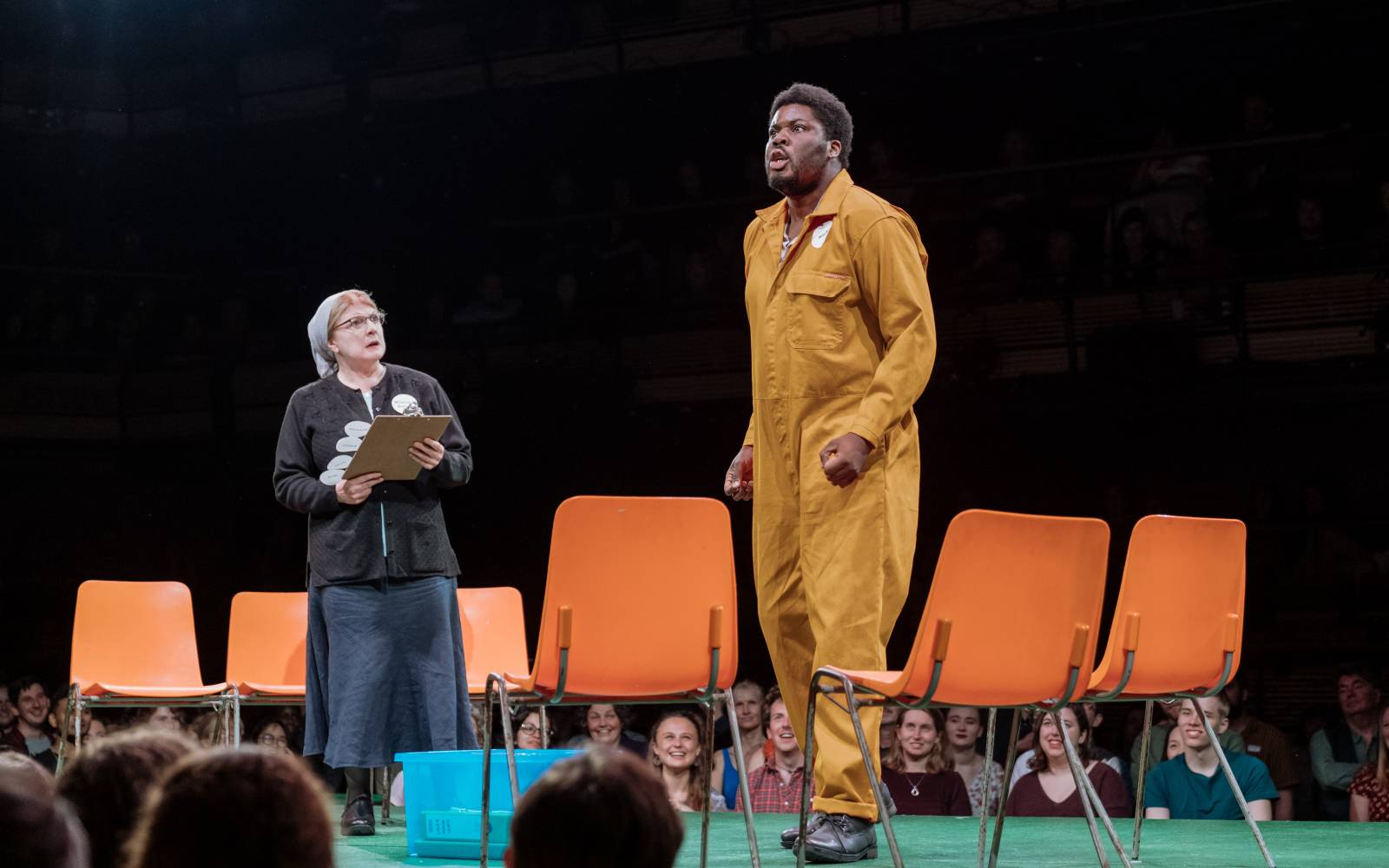
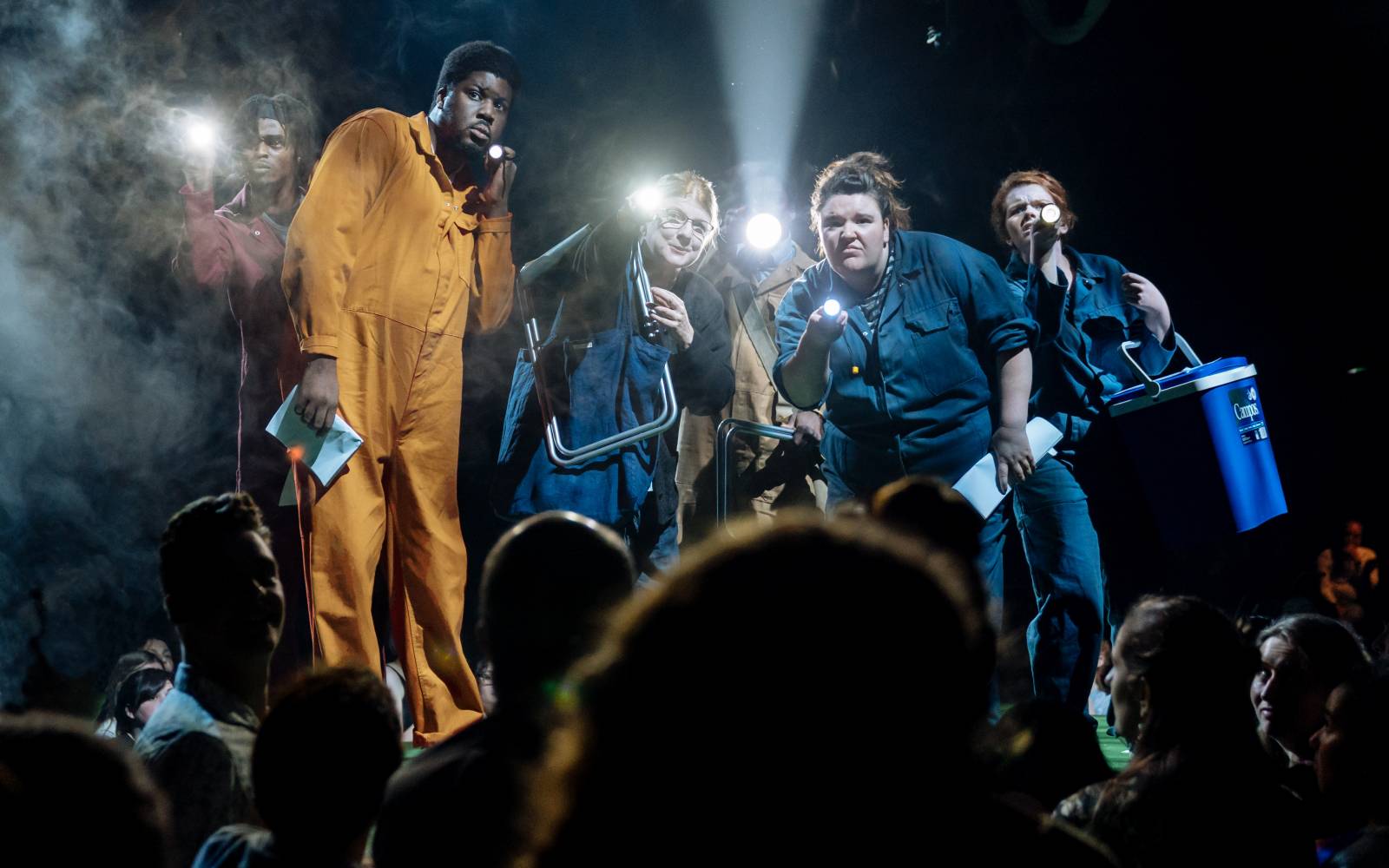
Often productions load up ‘Pyramus and Thisbe’ with every old gag they can remember from Michael Green’s The Art of Coarse Acting (1964). But in doing so they can miss the more serious point. A Midsummer Night’s Dream, by all usual standards, could have ended when the lovers wake up in the dawn and the couples head off towards their triple-marriage. Most Shakespeare comedies end at that point, once the plot confusions have been sorted out. Dream does not. Instead, troublingly, it offers us a vision of what might have been, of how easily comedy might have been tragedy, of how close this play is to Romeo and Juliet, a play that begins as if it could have been heading towards a reconciliation and joy but, by tiny mistakes (the intervention that leads to Mercutio’s death, the letter to Romeo that never reaches him, Juliet’s waking just two minutes too late), turns into a play that goes wrong. Ovid’s tale of Pyramus and Thisbe is similar, with Pyramus’ misreading of Thisbe’s bloodied robe as a sign of her death leading directly to their double suicide. Bottom and co. offer a comic performance of a tragedy and the failure of Lysander and Demetrius to see how easily this could have been their story might make us pause about their ‘happy’ ending.
Those small errors, accidents, mistakes can also be moments when, as Theseus puts it, ‘in the night, imagining some fear, / How easy is a bush supposed a bear!’. Theseus’ narrowly rational and realist explanation of what happened is hardly surprising but we know otherwise. We know that there is a fairy-world, that world that controls ours, not least in the terrifying image of climate change Titania gives, a world where the seasons are distorted, ending her account of the misery of failed crops, disease and death, with her acceptance of her share and Oberon’s in causing it: ‘this same progeny of evils comes / From our debate, from our dissension. / We are their parents and original.’ The spirit world of this play is much more than simply a plot device to enable action. That does not mean that it is therefore to be taken as straightforwardly real, that Shakespeare and his audiences believed in it as literal. It is also that their interventions create the very different logics of the play, not only realist and rational but also dreamlike.
At the end Puck offers the possibility of treating the entire play as dream:
If we shadows have offended
Think but this and all is mended:
That you have but slumbered here,
While these visions did appear.
We can choose to see the whole plot as ‘but a dream’. But, if that suggests something trivial, that would underestimate the power of the dream world to work by its own systems in dealing with the tensions of the daylight world. However we consider the events of the forest, they act as a kid of wish fulfilment that we can envy, as the problems of the four lovers and of the obstruction posed by Egeus, as well as the fantasies of anger and revenge that Titania and Oberon work through, can reach conclusion. Hovering around such dream patterns is always the way in which dream pivots uncontrollably from comedy to tragedy or, here, from tragedy to comedy.
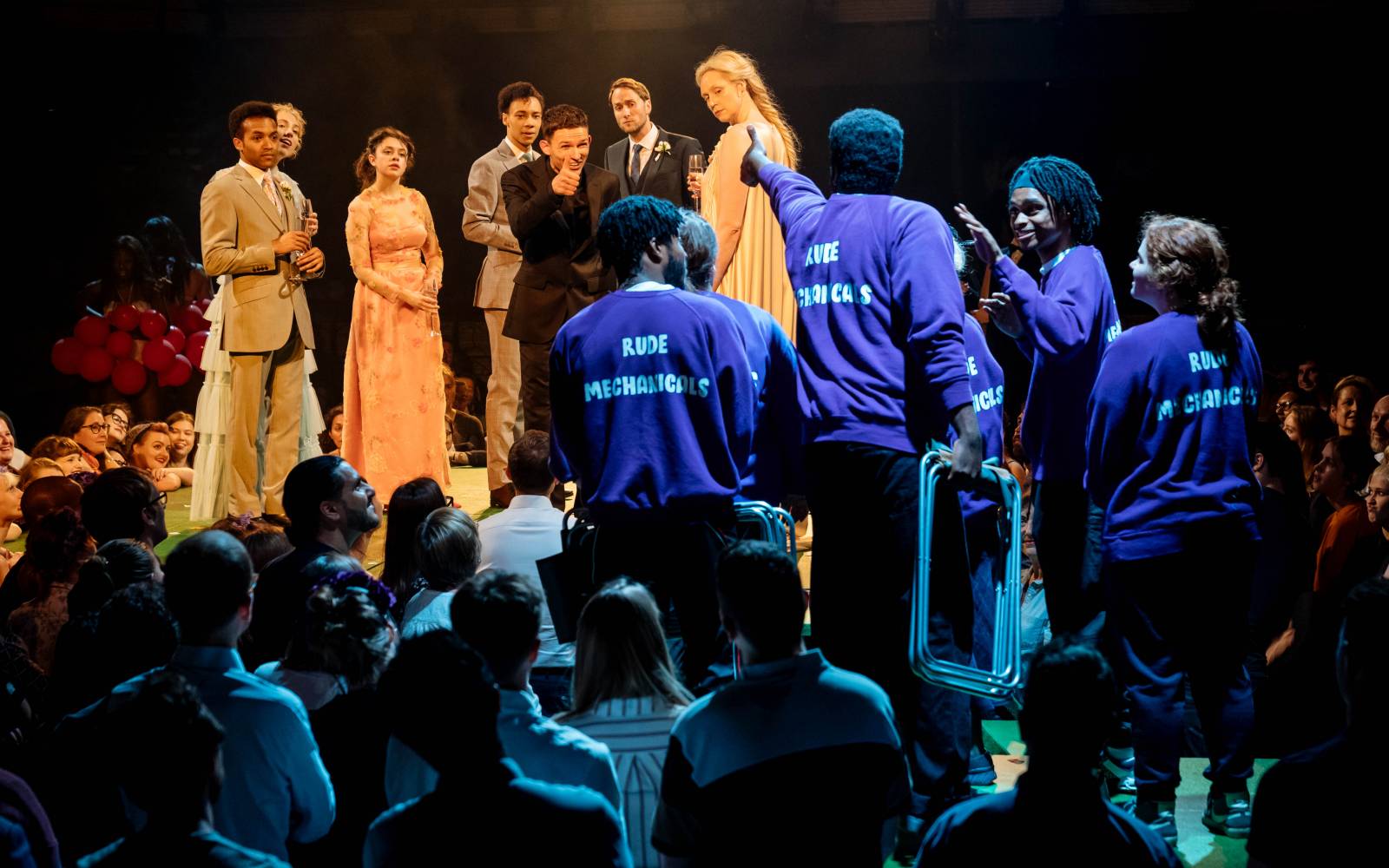
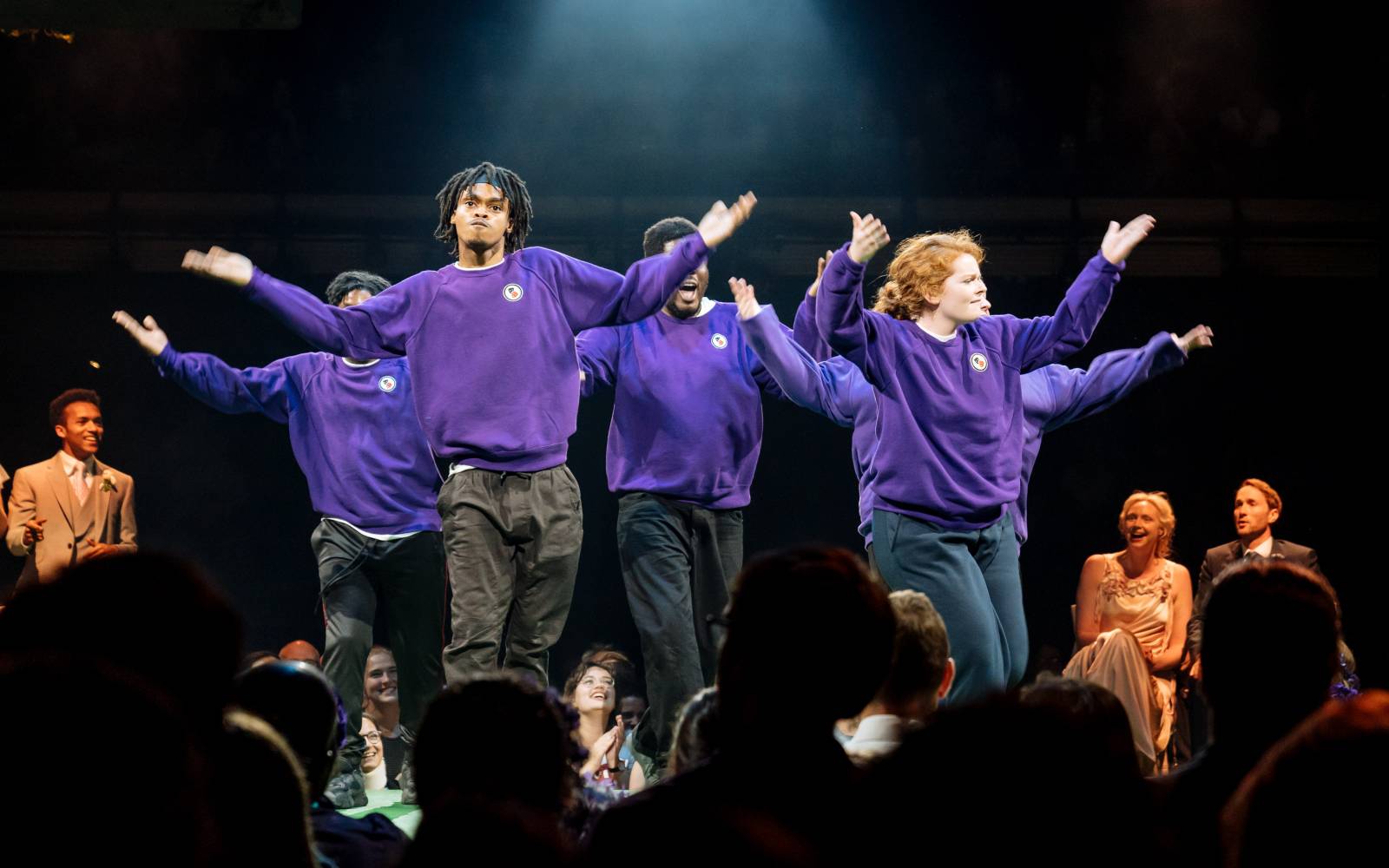
If we usually see dream as therapeutic but also as a place of the exploration of anxiety and repression, then the woodland dreams of this Dream may seem strikingly contemporary. There is a tension between ‘if only’ and ‘what if?’ in dreaming – and the desire and terror slide between the inviting possibility of the one and the terrifying possibility of the other. This is a play full of shadows and the play explores many senses in which the word is invoked: Lysander speaks of ‘sympathy in choice’ being ‘Swift as a shadow, short as any dream’; Puck calls Oberon ‘king of shadows’ (or, in this production, he calls Titania ‘queen of shadows’); Theseus calls the best actors ‘but shadows’. When Puck speaks of ‘we shadows’, does he mean actors or spirits?
If the tragedy of Pyramus and Thisbe becomes in poor performance a comedy, as we laugh at what the actors fail to achieve rather than grieve with what they intend to show, we cannot ignore the tragedies that hover on the edge of Dream, such as Hermia’s being trapped between either a forced marriage or a choice between a convent and death, a brutal law that at one moment Theseus may ‘by no means extenuate’ and later proves able simply to ignore, to ‘overbear’ Egeus’ will, simply and capriciously so that ‘by and by, with us, / These couples shall eternally be knit’. Some of Shakespeare’s audience would have known that Egeus was the name of Theseus’ father and that he committed suicide when Theseus flew the wrong sails on his return from the minotaur. Some might hear in the name Hippolyta the connection with her son Hippolytus who was killed by a sea-monster called up by Theseus when Phaedra, whose desire for her stepson was rebuffed, falsely accused him of harassing her. Shadows of tragedy cluster round the play, offering echoes and resonances, in the way that all dreams do, of events by turns actual and possible. The darkness of A Midsummer Night’s Dream is much more than that of night-time. Thomas Nashe’s sceptical account of The Terrors of the Night in his 1594 pamphlet, a work that may have been published just before or just after Shakespeare wrote Dream, parallel Theseus’ doubts about the dream world but the rest of the play suggests both Nashe and Theseus are probably wrong.
In the shifting world of dreams we can never know whether we are in control or being controlled, the dreamer or the dreamed like the character in Borges’ story ‘The Circular Ruins’ who, ‘with relief, with humiliation, with terror, understood that he also was an illusion, that someone else was dreaming him’. Dreams are metamorphic experiences but they are also theatrical in their open-ended range of event. Drama and other literary forms can come through dreams, just as Bottom wants Quince to turn his dream and vision, as he categorises the night experiences he wakes from, into a ballad. We know it is too simple to see his encounters as only a dream but we might still regret never hearing him sing this ballad ‘in the latter end of a play, before the Duke’. For Bottom is an ass, both half-literal and fully metaphoric, whose conceited humours we always find merry.
Peter Holland, May 2019
Peter Holland is McMeel Family Professor in Shakespeare Studies in the Department of Film, Television and Theatre at the University of Notre Dame, USA.
This article was originally published in the production‘s programme.
Photos by Manuel Harlan.
Further reading
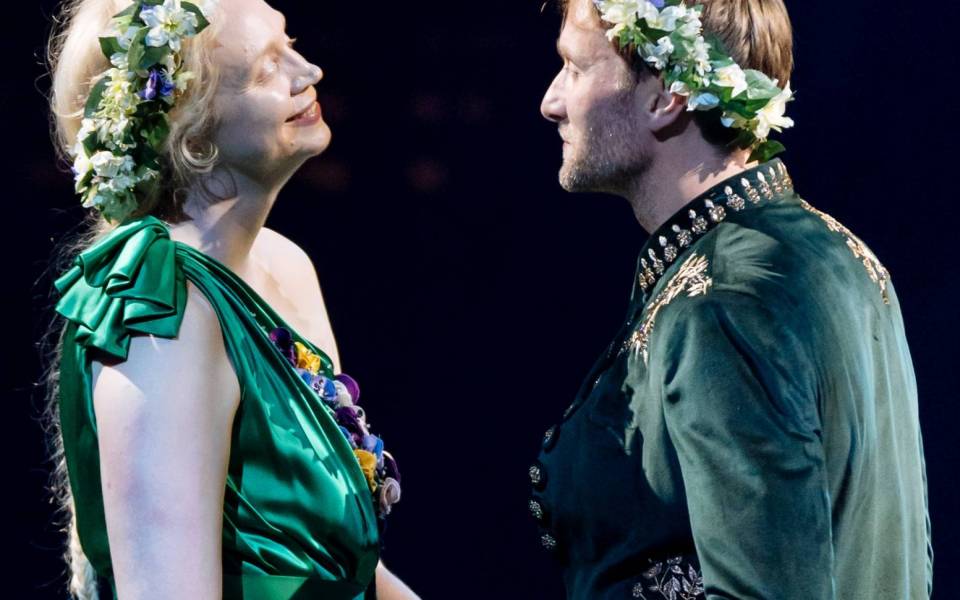
Thou Art Translated
Ayanna Thompson
A Midsummer Night’s Dream is a play that is deeply invested in exploring what happens when situations, locations, people, plots, and objects change, move, migrate, or to use the play’s own terminology ‘translate’…
More →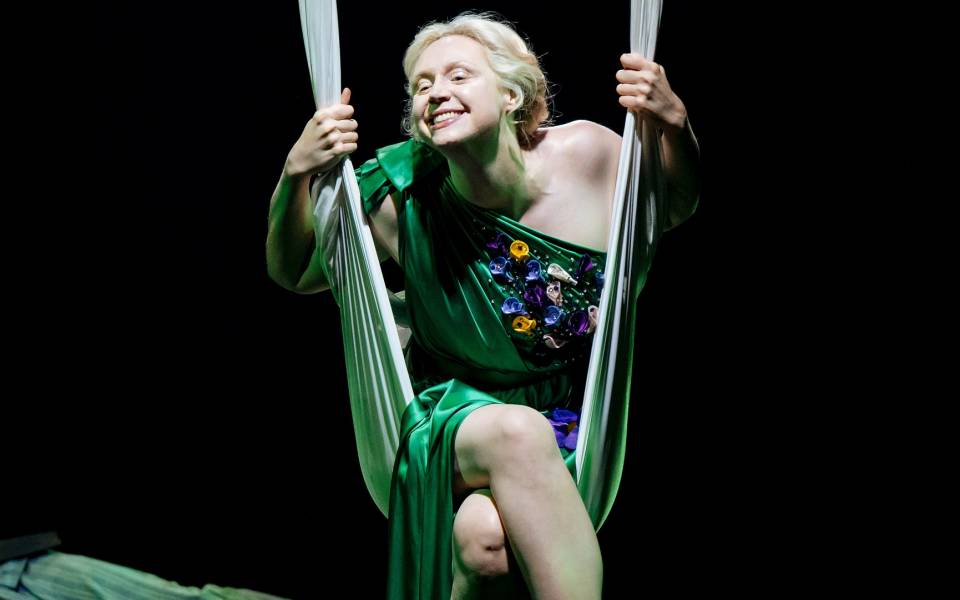
Hippolyta and the Amazons
Edith Hall
At a crucial moment in the final play of Aeschylus’ Oresteia, Athena explains how the rocky ‘Hill of Ares’ or ‘Areopagus’ in central Athens, which rivals her own Acropolis in size, received its name…
More →